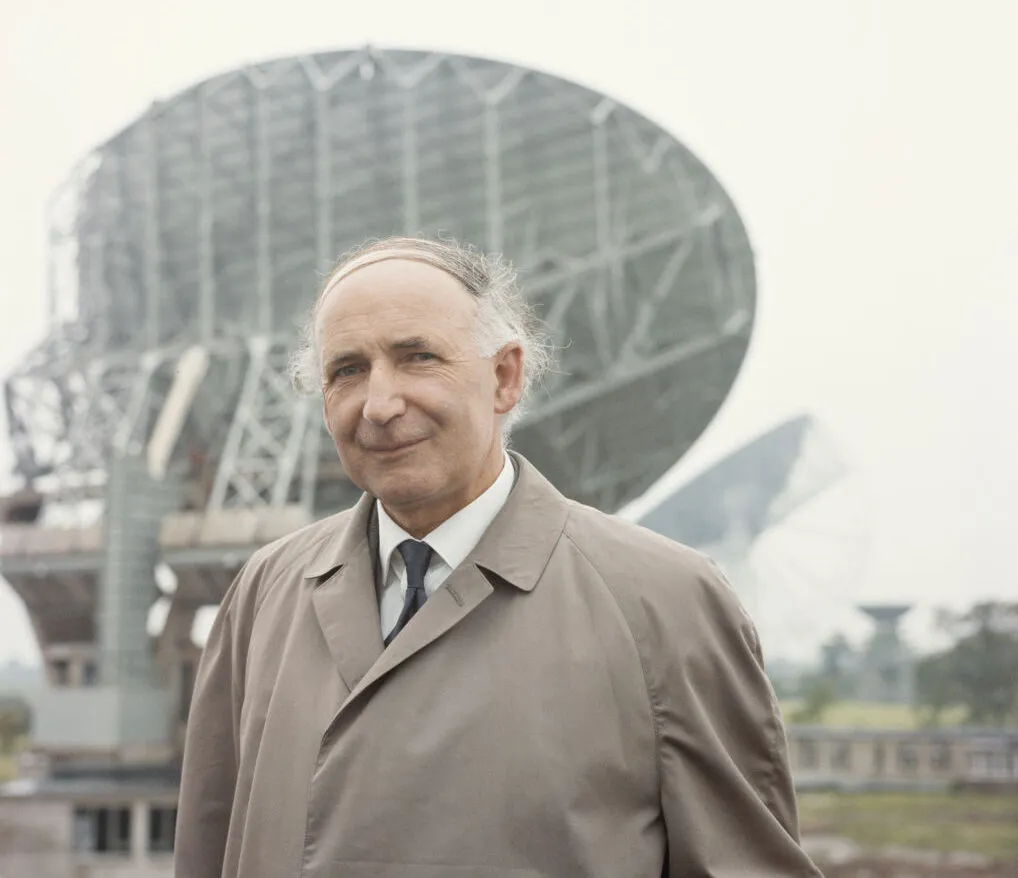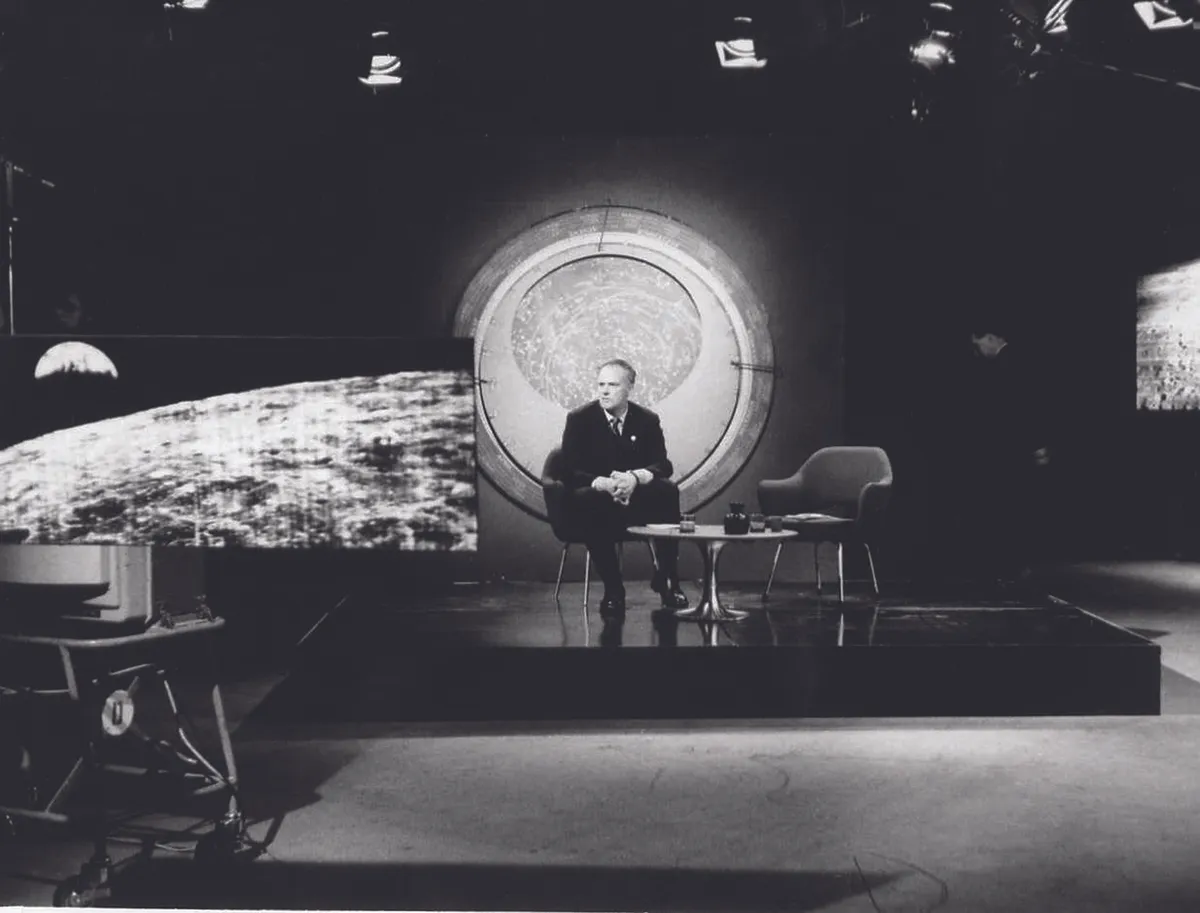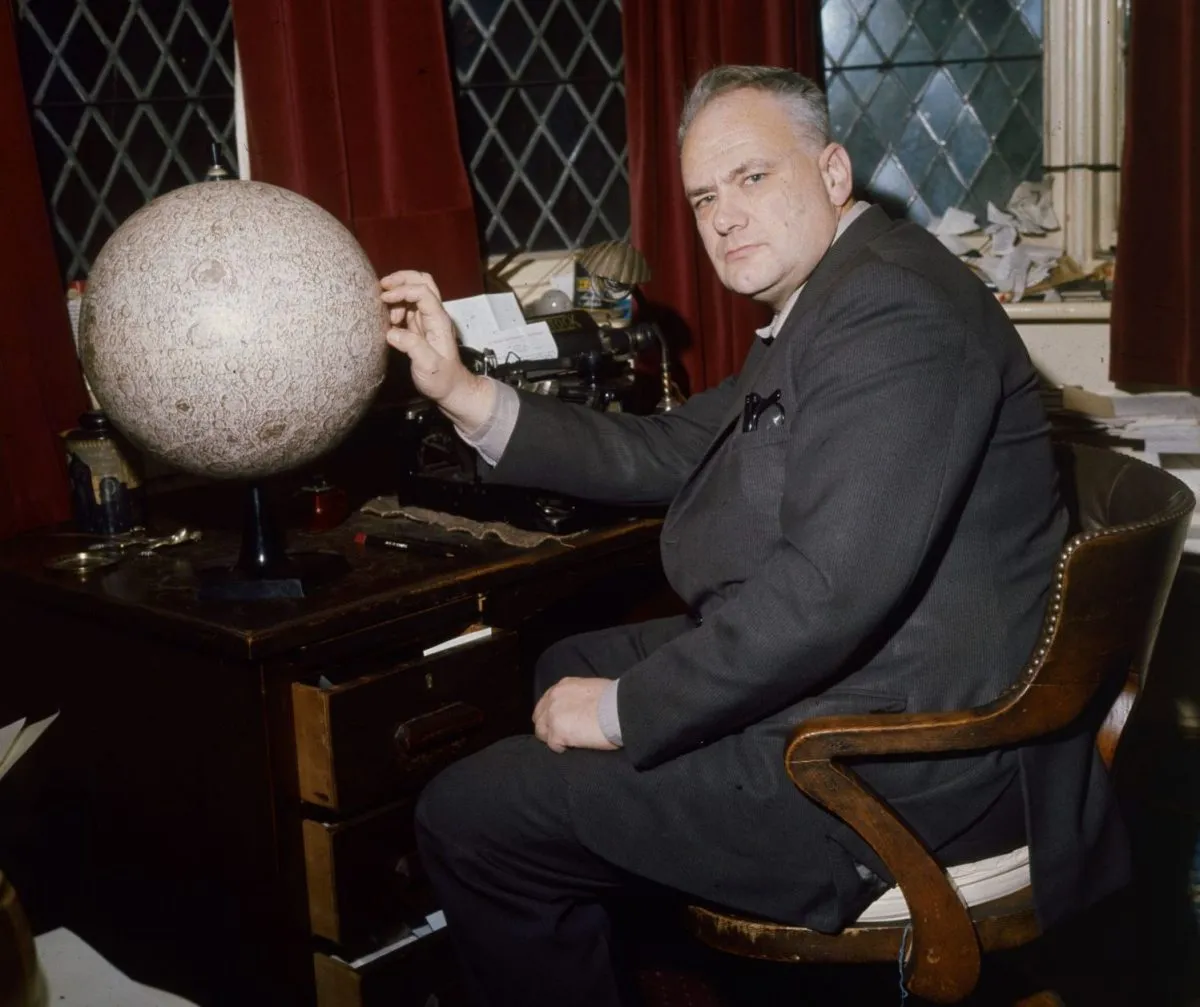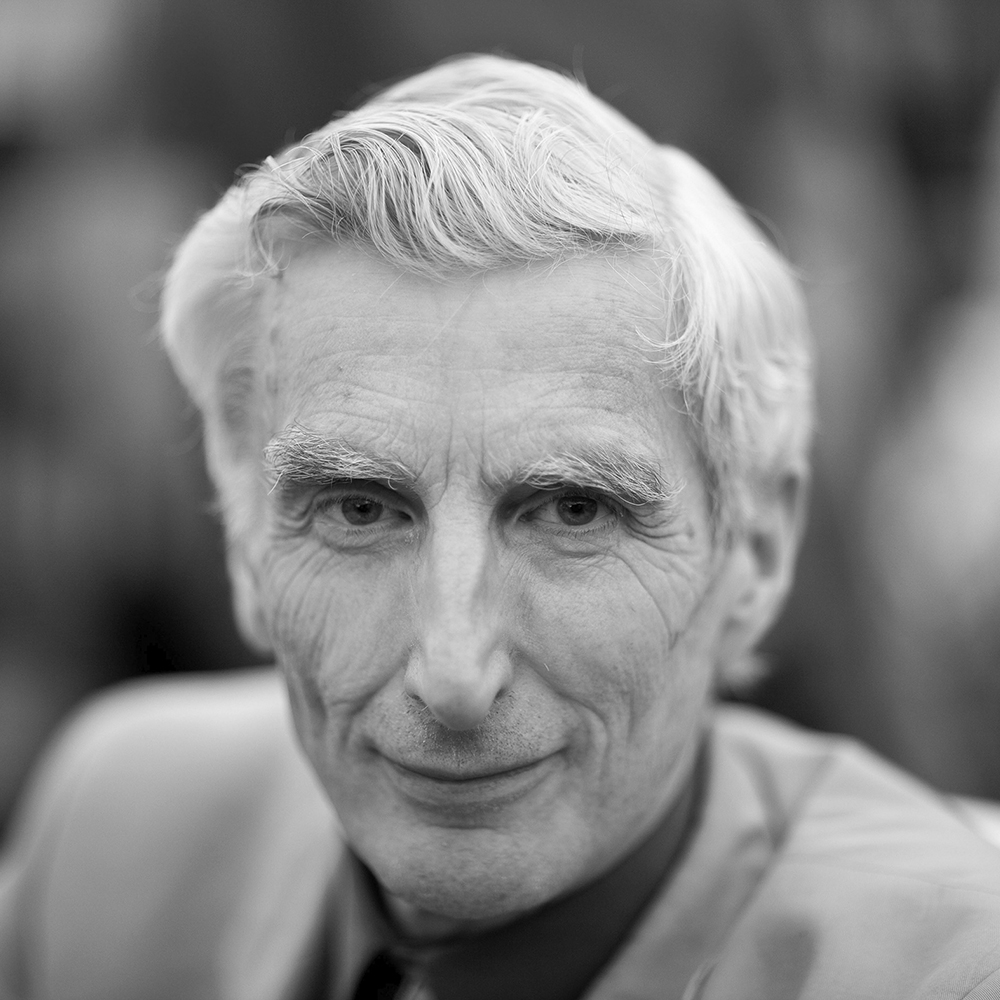April 1957 saw Patrick Moore present the first episode of The Sky at Night.
As it turned out, this was an auspicious time, because 1957 was a special year for science.
In that year, Sputnik 1 was launched – an event that signalled the start of the space age.
And Bernard Lovell’s huge Jodrell Bank telescope – now acclaimed as one of the nation’s iconic structures and still doing frontier research today – came into service just in time to track Sputnik’s path across the sky.

I am old enough to remember these events and, as a schoolboy, to have watched Patrick’s earliest programmes on the flickering black and white television that my family had recently acquired.
Indeed, these programmes were among the influences that led to my interest in astronomy and there must be many others, of my generation and later, who were enthused in a similar way.

In the decades since 1957, astronomy and space science have advanced on an ever-wider front.
We have witnessed Neil Armstrong’s ‘one small step’ on the Moon; unmanned probes have been sent to all the planets; our cosmic vision has been extended and sharpened by space observatories (the Hubble Space Telescope pre-eminent among them) and by huge optical and radio telescopes on the ground.
Patrick has reported on all of these, in more than 650 editions of his programme, and visited almost every part of the world where astronomy (and eclipses) are pursued.
What makes Patrick so special, and his programmes so engaging, must surely be his enthusiasm and his expertise.
He describes himself modestly as an amateur, but his knowledge is encyclopedic and as up to date as any professional, spanning the cosmos from the Moon and comets to the remotest galaxy or quasar.
As a communicator and broadcaster, Patrick is a consummate professional.

I don’t generally enjoy appearing on TV, but being interviewed by Patrick is a pleasure – indeed, it was a privilege to join the roll-call of astronomers and astronauts to have appeared on The Sky at Night during Patrick’s record-breaking half-century as its presenter and moving spirit.
The Sky at Night is in itself a remarkable lifetime achievement, for which Patrick has put many generations in his debt, but it is only a part of his output.
He has written many books, along with a steady flow of articles for newspapers and magazines.
And he has given huge numbers of talks to schools and astronomy groups around the world.
What makes him even more special is the unsung efforts he commits to any cause that grabbed his enthusiasm, and his helpfulness to individuals.
He bashes out responses to his immense postbag with his famous typewriter, offering information or advice.
I’m one of hundreds – perhaps even thousands – of people who appreciated the personal letters they received from him.
We should salute Patrick, and thank him for the inspiring, informative and entertaining way he’s helped so many of us to appreciate the wonders of our cosmic habitat.
This article originally appeared in the April 2007 issue of BBC Sky at Night Magazine.
